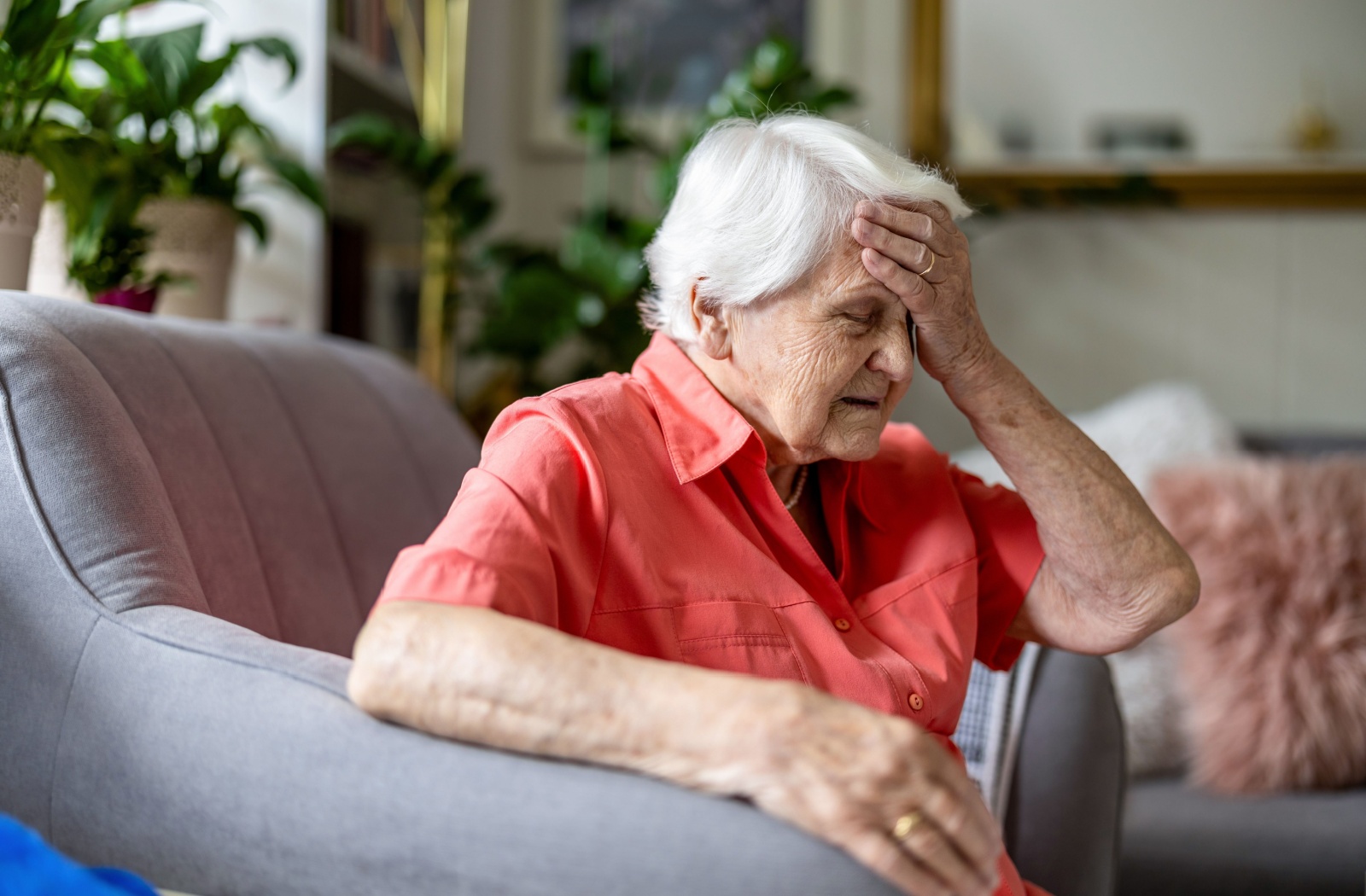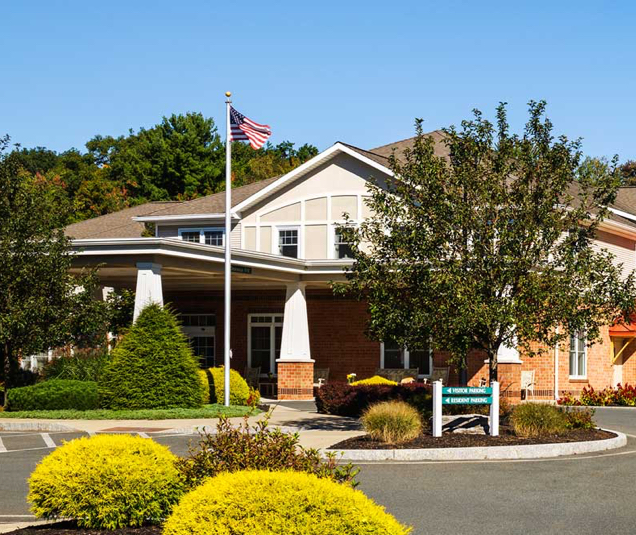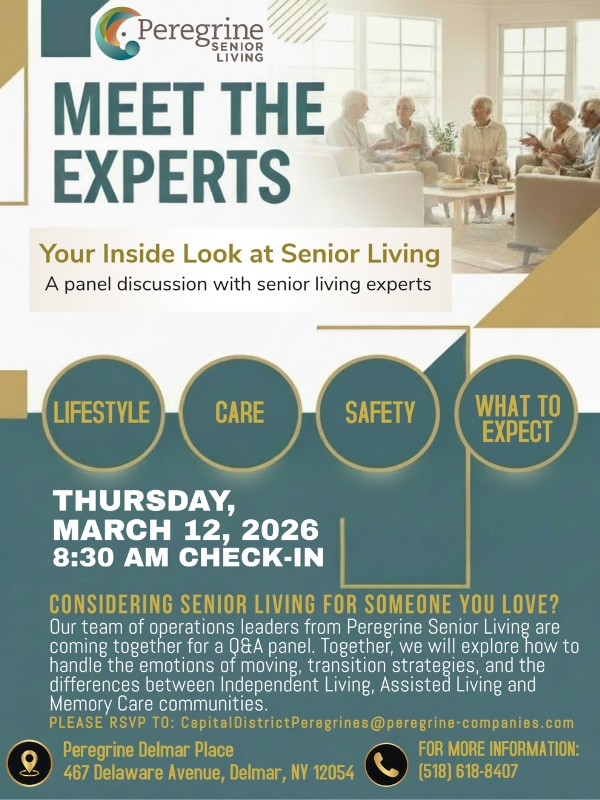When a senior citizen faints or falls at home, it can be frightening for them and their loved ones. While it may not always signal a serious health condition, fainting should never be ignored—especially in older adults.
If a senior faints, stay calm. When possible, protect them from injury or cushion a potential fall. Check for responsiveness and breathing, keep them lying flat with their legs elevated, and call 911 if they don’t quickly regain consciousness or show signs of distress.
Once they’re alert, help them sit up slowly, offer water, and monitor them closely. Follow up with their doctor even if they appear fine and take steps to make the home safer to prevent future incidents.
Knowing what to do and how to follow up afterward is critical to protecting your loved one’s health and preventing future episodes.
Why Do Seniors Faint?
Fainting, also known as syncope, is a sudden, brief loss of consciousness that usually lasts only a few seconds or minutes. It occurs twice as often in adults 70+ and up to four times in those 80+.
As people age, the body becomes more vulnerable to changes in blood pressure, medication side effects, dehydration, and other medical conditions that can lead to fainting.
Common Causes of Fainting in Older Adults
The most common causes of fainting include:
- Low blood pressure, such as a sudden drop often when standing up quickly (orthostatic hypotension), can reduce blood flow to the brain & cause fainting
- Dehydration, often caused by not drinking enough water, can lead to dizziness, weakness, & fainting
- Medication side effects, particularly from some medications for blood pressure, heart disease, or anxiety, may cause fainting
- Irregular heart rhythms, such as arrhythmias or other heart conditions, can interrupt blood flow & trigger a loss of consciousness
- Low blood sugar, resulting from skipped meals or poorly managed diabetes, can lead to fainting spells
- Neurological conditions, including seizures or mini-strokes (TIAs), can sometimes cause syncope
- Emotional or physical stress, such as pain, anxiety, or overheating, may cause a sudden drop in blood pressure
While some causes are mild and easily treated or prevented, others can signal a more serious underlying health issue.
Immediate Steps to Take If a Senior Faints at Home
If a senior faints at home, acting quickly and calmly can prevent injury and help them receive the necessary care.
Step 1: Stay Calm & Ensure Safety
Your priority is to keep your loved one safe. If your loved one has collapsed:
- Gently lower them to the floor if they’re starting to fall
- Make sure their head is protected from hitting anything hard
- Clear the area of any furniture or objects that could cause injury
Step 2: Check Responsiveness & Breathing
Try to wake them by gently tapping their shoulder and calling their name.
- If they are responsive & breathing, let them lie flat on their back with their legs slightly elevated to improve blood flow to the brain
- If they are unresponsive or not breathing, call 911 immediately; only begin CPR if you are trained to do so
Step 3: Do Not Force Movement
Don’t try to sit or stand the person up right away. Give them time to rest on the floor for a few minutes while you monitor their breathing and alertness.
Step 4: Help Them Sit Up Slowly
Once they regain consciousness and seem stable, help them sit up slowly. Offer them a glass of water and speak to them calmly. Confirm that they are fully alert and capable of bearing weight before attempting to move them to a chair or bed.
When to Call 911
Fainting may be caused by something minor, but emergency care is necessary if:
- The person remains unconscious for more than a minute
- They are experiencing chest pain, shortness of breath, or irregular heartbeat
- There was a head injury or fall-related trauma
- The person is not breathing or has a seizure
- They have underlying health conditions like heart disease or diabetes
- Fainting has happened more than once in a short period
It’s always better to be safe than sorry. Even if your loved one seems to recover quickly, a medical evaluation is often needed to identify the cause and prevent recurrence.

What to Do After the Episode
After a fainting episode, observe your loved one closely, gather helpful information, and take steps to protect their safety moving forward.
Observe & Record What Happened
Take note of the details leading up to the fainting episode:
- What were they doing just before they fainted?
- Did they complain of dizziness, nausea, chest pain, or blurred vision?
- Did they fall or hit their head?
- How long were they unconscious?
- Were there any signs of confusion or weakness afterward?
These details will help healthcare providers make an accurate diagnosis.
Encourage a Medical Evaluation
Even if your loved one seems fine afterward, schedule an appointment with their doctor. A complete evaluation can help rule out serious causes such as heart issues or neurological conditions. Their provider may recommend:
- Blood pressure monitoring (especially standing vs. lying down)
- Blood tests
- Electrocardiogram (EKG)
- Imaging (like CT scan or MRI) if head trauma occurred
- Medication review
Make Their Home Safer
If your loved one is at risk of fainting again, take steps to reduce the chances of injury:
- Remove tripping hazards like rugs or clutter
- Install grab bars in bathrooms
- Ensure good lighting in hallways and stairways
- Use a medical alert device or wearable fall detector for added peace of mind
Supporting a Loved One After Fainting
After a fainting episode, it’s common for seniors to feel shaken or anxious that it could happen again. They may struggle with feelings of embarrassment or shame. Some seniors even hide falling incidents to avoid being a burden or losing their independence.
Open communication and reassurance can help them process their experience and recover emotionally.
Encourage them to:
- Stay hydrated
- Eat regular meals
- Rise slowly from sitting or lying positions
- Avoid overheating or long periods of standing
- Report any lightheadedness or dizziness right away
Physical therapy or balance exercises may help improve stability and reduce future falls.
When Fainting Is a Sign of Something More
If fainting happens more than once, or if it’s paired with other symptoms like memory loss, numbness, or confusion, it may be a sign of an underlying neurological or cardiovascular condition.
Persistent syncope can also indicate medication imbalances or dehydration issues that you or your loved one needs to address through ongoing care and monitoring.
Multiple fainting or falling episodes also signal a need to examine your loved one’s current home support carefully. You may need to explore additional caregiver support or consider alternative living arrangements to protect their safety and well-being.
Your Partner in Preparation & Proactive Prevention
Fainting can be unsettling, but knowing what to do—and what steps to take after—can make all the difference. Staying calm, prioritizing safety, and following up with a healthcare provider are critical actions you can take to protect your loved one’s health and well-being.
If your loved one is having regular fainting spells or needs increased assistance at home, it might be time to explore the benefits of assisted living.
At Peregrine Senior Living at Delmar Place, we prioritize safety, dignity, and responsive care in every situation. Our trained team handles health-related incidents with confidence and compassion. We work closely with families so our residents receive the support they need.
From fall prevention to medication monitoring, we’re here to help seniors live confidently and comfortably every day. To schedule a tour of our community, contact us now.













Happy March! Please see link to our calendar!
... See MoreSee Less
view.illustratus.com
illst.us
0 CommentsComment on Facebook
World’s tallest leprechaun kicking off the St. Patrick’s festivities 🍀💚 ... See MoreSee Less
1 CommentsComment on Facebook
Dining at our community is about more than what’s on the plate—it’s about connection, community, and the joy of gathering together.
Our talented culinary team crafts meals that are both delicious and nutritious, offering flavors that comfort and inspire.
From themed dinners to chef demonstrations, each meal becomes an opportunity to savor the moment and celebrate life’s simple pleasures. 🍴
peregrinedelmarplace.com/ ... See MoreSee Less
0 CommentsComment on Facebook
Today we celebrate the caregivers—those whose quiet strength and unwavering compassion bring comfort to so many.
We see the difference caregivers make every day: holding a hand, sharing a smile, or offering reassurance when it’s needed most. 💕
Your dedication reminds us that true care goes beyond tasks—it’s an act of love, patience, and humanity.
Thank you for all you do to make the world a more compassionate place.
peregrinedelmarplace.com/ ... See MoreSee Less
1 CommentsComment on Facebook
Thank you to Jude and her team at Mary Kay for the valentine gifts. ... See MoreSee Less
1 CommentsComment on Facebook
Thank you to the Tri County Banjo Band for playing for us. Everyone loved it!🪕 ... See MoreSee Less
0 CommentsComment on Facebook
Celebrating Valentine’s Day with Wally! ... See MoreSee Less
0 CommentsComment on Facebook